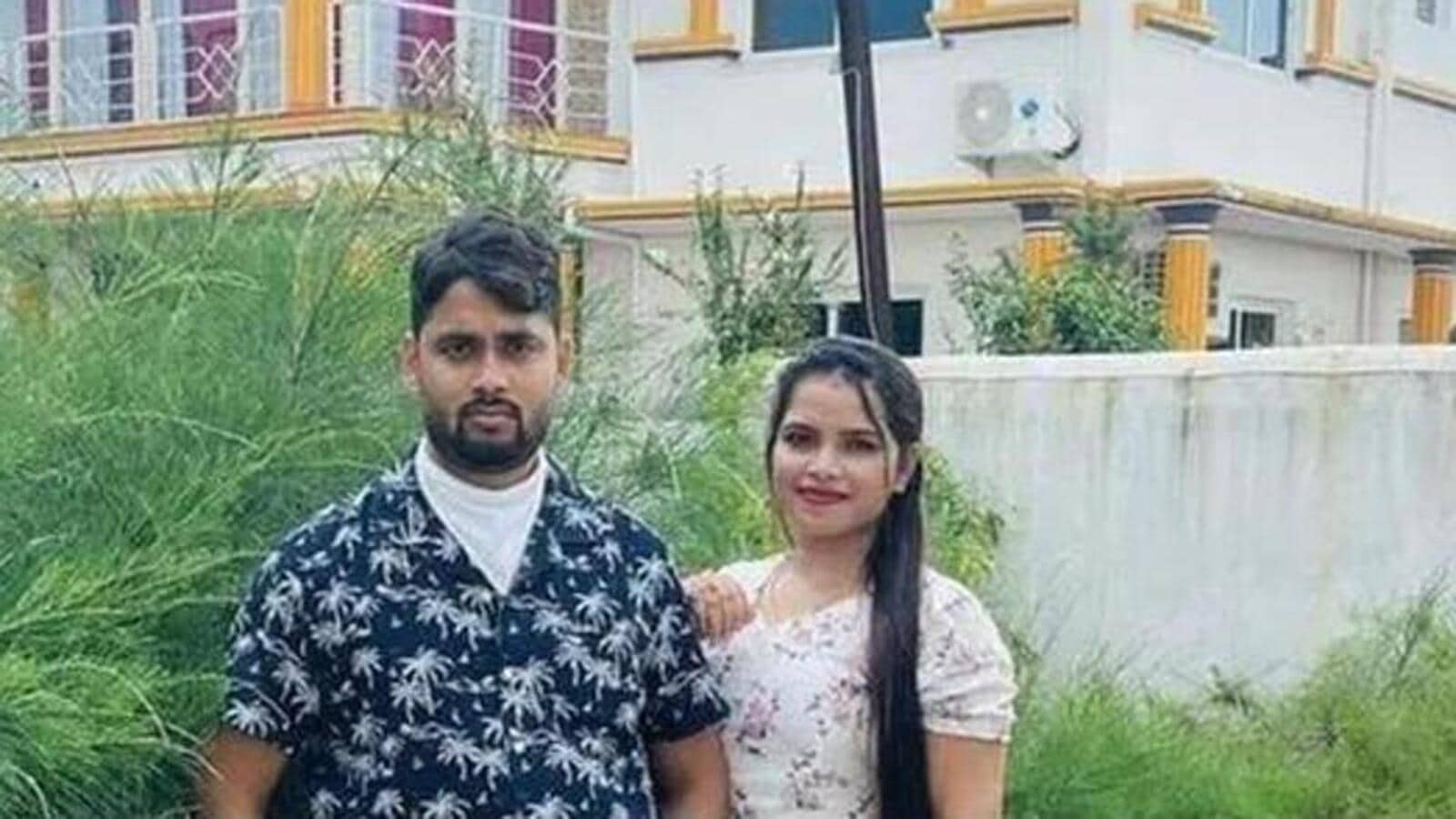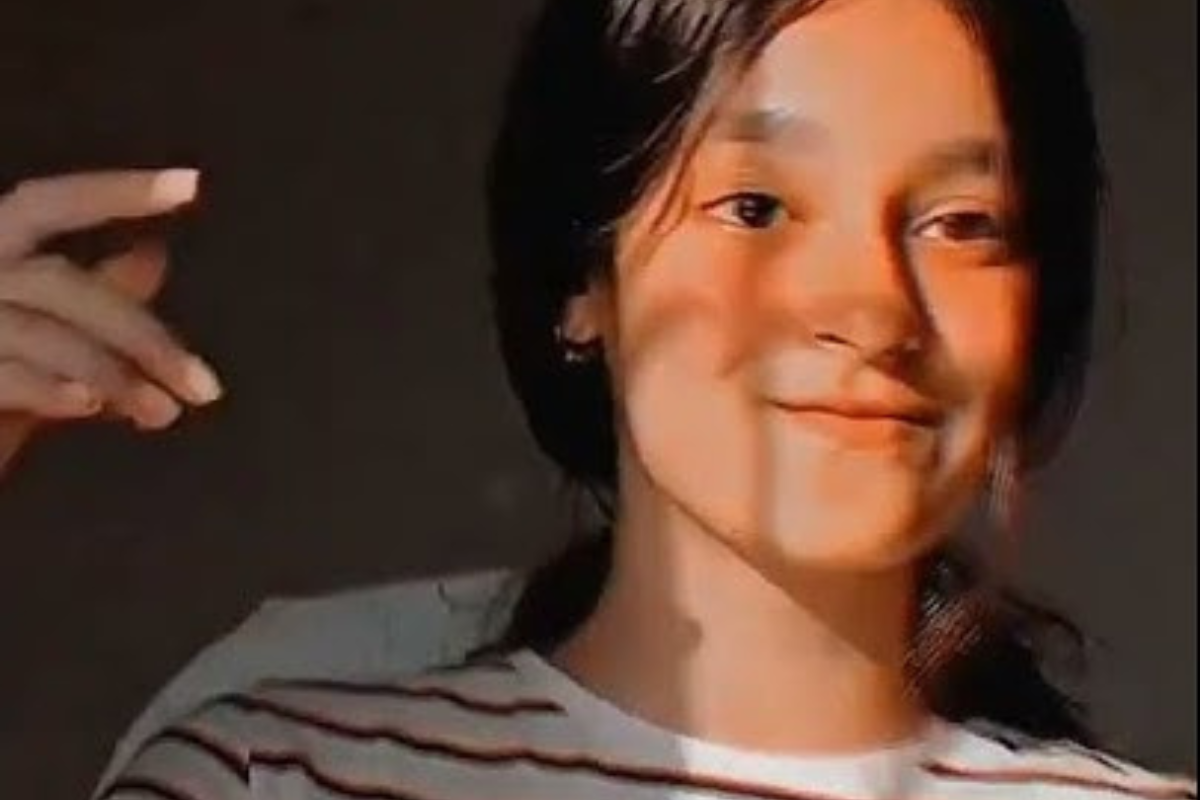The topic of "Odisha MMS" often brings up discussions about digital privacy and the way information travels online. It’s a subject that, you know, really highlights some of the big challenges people face in our connected world. These instances, apparently, serve as a stark reminder that what happens online can have very real impacts on individuals and communities.
Odisha, pronounced [oˈɽisa] ⓘ, a place formerly known as Orissa until 2011, is a state located in eastern India. It's a land with a deep history, often called "the soul of India," and it boasts a truly rich cultural heritage. From the ancient nation of Kalinga to its stunning temples in Bhubaneswar, like the famous Jagannath Temple, and its beautiful beaches along the Bay of Bengal, Odisha is, as a matter of fact, a place of remarkable beauty and tradition.
Yet, like many places, Odisha also experiences the less pleasant side of the digital age. The occurrences linked to "Odisha MMS" bring into focus, you know, the critical need for everyone to think about online consent, personal space, and acting responsibly when using the internet. This article will, in a way, explore these vital points, helping us all grasp the importance of keeping our digital lives secure and respectful.
Table of Contents
- The Heart of Odisha: A Glimpse
- Understanding the "Odisha MMS" Phenomenon
- Subhashree Sahu: A Case Study in Digital Exposure
- The Deep Impact of Viral Videos
- Protecting Yourself Online: Essential Steps
- Fostering a Safer Online Community
- Common Questions About Online Privacy in Odisha
The Heart of Odisha: A Glimpse
Odisha, sometimes referred to as Orissa, is a state of India, situated on the east coast, right by the Bay of Bengal. It has a land area of 155,820 square kilometers, which is about 60,160 square miles. The state is, you know, home to almost 42 million people, and the most spoken language there is Odia, also known as Oriya. It's truly a place with a lot of people and a unique language.
This region is bounded by the states of Jharkhand and West Bengal to its north and northeast. The eastern part of Odisha, which is quite close to the sea, tends to be more prosperous, offering a good number of places for visitors and many sites of religious importance. The western part, in contrast, is, like, rather hilly. People often visit for attractions like the famous Jagannath Temple, and the state also holds economic strength in mining and various industries.
Odisha is a popular spot for those who travel, known for its deep cultural roots, amazing temples, clean beaches, and natural beauty. You can explore its rich past, from Kalinga's old history and tribal ways of life, to its rivers and national parks like Simlipal and Bhitarkanika. It's, you know, a place that truly offers a wide range of experiences for anyone who visits.
Understanding the "Odisha MMS" Phenomenon
The term "Odisha MMS video" has, in recent times, become linked with instances of private recordings that, apparently, make their way onto the internet without the agreement of the people in them. These situations often show, you know, a clear violation of personal boundaries and trust. When such videos spread, they tend to cause a lot of worry and discussion among the public.
What Happened: The Incidents
There have been a few notable occurrences that, you know, have brought this issue to the forefront in Odisha. For instance, reports mentioned an explicit video that, apparently, involved a teenage girl and an autorickshaw driver. This particular recording was, in a way, circulating widely in a place called the "silk city." Police, as a matter of fact, began looking into the situation based on the information they had.
Another incident involved a male student and his college friend in Nayagarh district, where a video showing intimate moments went viral. The Odisha police, you know, caught the male student on a Sunday. There was also a situation where a private video, somehow, ended up online without the permission of those involved, and it, you know, spread very quickly across different platforms.
The issue of "MMS" also came up in connection with a student's death case, which, in a way, added more mystery to the situation. Despite the police giving advice to stop the spread of such videos on social media, a clip showing an intimate moment of a college student, you know, continued to circulate. These instances highlight a recurring problem, really, of private content being shared without permission.
The Role of Social Media
Social media platforms, like Telegram and Instagram, play a big part in how these videos, you know, gain traction. There are many Odisha Telegram channels and groups, for example, that people use for chatting and news. These groups, you know, can become places where viral content, including private videos, spreads very fast, often without much thought for the consequences.
From updates on local life to discussions about government jobs, these groups are, as a matter of fact, often buzzing with activity. If you are from Odisha, you might find many such group links. However, this ease of sharing means that private videos, once leaked, can, you know, reach a vast number of people almost instantly, making it very hard to control their spread.
The phenomenon of "Odisha viral MMS video" is, you know, a very clear reminder of how important digital privacy, consent, and acting responsibly online truly are. It shows that the way we use these platforms, and what we choose to share or view, has, in a way, a big impact on others. It's a topic that, you know, calls for everyone to be more aware.
Subhashree Sahu: A Case Study in Digital Exposure
Subhashree Sahu, an Instagram influencer from Odisha, became widely known after several private videos, you know, reportedly featuring her, spread very quickly on social media. She is, as a matter of fact, 17 years old and creates reels of her dance and lip-sync videos, sharing them on Instagram. This situation with her videos, you know, became a very public example of digital privacy being compromised.
The controversy, apparently, began when a video, said to be of Subhashree Sahu, appeared online and, you know, went viral across many platforms. This incident, in a way, brought a lot of attention to the challenges faced by individuals, especially young people, when their private content is shared without their permission. It really shows how quickly things can change online.
To address the darker elements of social media, Subhashree Sahu, you know, partnered with Sociokit Entertainment on an innovative Odia web series. The series, which is, you know, called "Shedding Light," aims to bring awareness to these issues. This collaboration, in a way, shows a step towards using digital platforms to educate people about online safety and the need for consent.
Personal Details and Background
Here are some basic details about Subhashree Sahu, based on the information provided:
| Name | Subhashree Sahu |
| Age | 17 years old |
| Profession | Instagram Influencer |
| Primary Content | Dance and lip-sync videos (reels) |
| Location | Odisha, India |
| Notable Association | Partnered with Sociokit Entertainment for "Shedding Light" web series |
The Deep Impact of Viral Videos
The spread of private videos, like those linked to "Odisha MMS," has, you know, very serious consequences for the people involved. It's not just about the video itself; it's about the lasting harm it can cause. These incidents, apparently, show how quickly a person's life can be turned upside down because of something shared without their agreement.
Privacy Concerns and Consent
At the heart of these issues is the fundamental idea of digital privacy and consent. A private video, by its very nature, is meant for a limited audience, usually just the individuals involved. When it makes its way onto the internet without permission, it's, you know, a big violation of that trust and personal space. This act, in a way, strips individuals of their control over their own image and story.
The concept of consent is, you know, absolutely key here. It means that everyone involved must agree to the sharing of content, especially private content. Without clear and ongoing agreement, sharing such material is, as a matter of fact, a serious breach of privacy. The "Odisha MMS" incidents, you know, really underscore how often this vital principle is overlooked or ignored.
People need to understand that once something is online, it's very hard to take it back. The internet, you know, has a long memory, and content can be copied and spread many times over. This means that even if a video is removed from one platform, it might, you know, still exist elsewhere. This makes the initial act of unauthorized sharing particularly damaging and long-lasting.
Emotional and Social Repercussions
The people whose private videos become public often face, you know, severe emotional distress. They might feel shame, anger, sadness, and a deep sense of betrayal. This kind of exposure can, apparently, lead to significant mental health challenges. It's a situation that, you know, can feel very isolating and overwhelming for those involved.
Socially, the impact can be just as difficult. Individuals might face judgment, bullying, or even exclusion from their communities. Their reputation can be, you know, severely damaged, affecting their relationships, education, and even future job prospects. The ripple effect of a viral video, in a way, can extend far beyond the initial incident, touching every part of a person's life.
For young people, like the college students mentioned, these experiences can be particularly harmful during a time when they are still, you know, figuring out who they are. The pressure and public scrutiny can, apparently, disrupt their development and well-being. It's a very challenging situation, and society, you know, needs to offer support rather than further judgment.
Legal Aspects and Police Actions
In India, sharing private content without consent is, you know, a punishable offense under various laws, including those related to information technology. The police in Odisha have, as a matter of fact, been involved in investigating these matters. For example, they caught the male student linked to one viral video in Nayagarh district. This shows that, you know, legal action can and does happen.
The Odisha police have also, you know, issued advice to try and stop the circulation of viral videos on social media. This indicates a recognition of the problem and an effort to control the spread of such material. However, the sheer volume and speed at which content spreads online means that, you know, enforcement can be very challenging.
Investigations often look into how the videos were leaked and who was responsible for their initial spread. The aim is to, you know, hold accountable those who violate privacy and cause harm. While legal processes can be slow, they are, in a way, an important part of addressing these issues and trying to deter future incidents. It's about, you know, seeking justice for those affected.
Protecting Yourself Online: Essential Steps
Given the risks associated with digital sharing, it's, you know, very important for everyone to take steps to protect their personal information and privacy online. Being aware and proactive can, apparently, make a big difference in preventing unwanted exposure. These steps are, in a way, about building safer habits in our daily digital lives.
Thinking Before You Share
Before you share any personal photos or videos, especially those of an intimate nature, you know, really pause and think. Consider who will see it, how it might be used, and whether you are truly comfortable with it being out there. Once something is shared, you know, it's almost impossible to fully control where it goes or who accesses it. This moment of thought is, in a way, a very important first line of defense.
Always make sure that everyone in a photo or video has given their clear agreement to it being shared. Consent is, you know, not a one-time thing; it should be ongoing, and people should feel comfortable changing their minds. If there's any doubt, it's, you know, usually better not to share. This simple rule can, apparently, prevent a lot of future problems.
Also, be mindful of the content you receive from others. If someone sends you a private video or image, you know, do not share it further without their explicit permission. Spreading such content, even if you didn't create it, can, as a matter of fact, contribute to the problem and have serious consequences for everyone involved. It's about, you know, respecting others' privacy just as you would want yours respected.
Securing Your Digital Spaces
Make sure your social media accounts and other online platforms are, you know, set to private where possible. Review your privacy settings regularly to ensure they align with your comfort level. Strong, unique passwords for all your accounts are, in a way, absolutely vital. Using two-factor authentication, where available, adds, apparently, an extra layer of security.
Be careful about clicking on suspicious links or downloading files from unknown sources. These can, you know, sometimes be ways for malicious actors to gain access to your devices and personal information. Keeping your software updated also helps, you know, protect against security weaknesses. These small steps can, in a way, make your online presence much safer.
Think about what information you make public on your profiles. Even seemingly harmless details can, you know, sometimes be put together to create a bigger picture about you. Being selective about what you share publicly can, apparently, help protect your overall digital footprint. It's about, you know, managing your online identity with care.
Knowing Your Rights
It's important to be aware of your rights concerning digital privacy and what to do if your private content is shared without your consent. In India, there are laws in place to address such violations. If you find yourself in such a situation, you know, seeking legal advice or reporting the incident to the police is a very important step. Organizations exist that, you know, can also offer support and guidance.
Many platforms have mechanisms for reporting unauthorized content. Learning how to use these reporting tools can, apparently, help in getting such material removed quickly. Knowing that you have avenues for recourse can, in a way, empower you to act if your privacy is compromised. It's about, you know, not feeling helpless in a difficult situation.
Educating yourself and others about these rights and the dangers of online sharing is, you know, also a big part of the solution. The more people who are aware, the better equipped everyone will be to navigate the digital world safely. You can learn more about digital safety practices on our site, and find resources to help you protect yourself and others by visiting this page here.
Fostering a Safer Online Community
The incidents related to "Odisha MMS" highlight a broader need for communities to foster a culture of respect and responsibility online. It's not just about individual actions; it's about how we all, you know, contribute to the digital environment. Encouraging open conversations about consent and privacy can, apparently, help build a more understanding and protective online space.
Parents, educators, and community leaders have, you know, a very important role to play in teaching young people about safe online practices. This includes discussing the serious consequences of sharing private content without permission and the importance of empathy. Such conversations can, in a way, equip the next generation with the tools they need to make good choices.
Supporting victims of online privacy violations is, you know, also absolutely vital. Instead of judgment, people need compassion and help to deal with the aftermath of such incidents. Creating safe spaces for discussion and providing access to mental health support can, apparently, make a big difference in their recovery. It's about building a community that, you know, looks out for each other, both online and off.
The "Odisha viral MMS video" phenomenon, as of today, is a very clear reminder of how important digital privacy, consent, and responsible online behavior are. It calls for everyone to, you know, be more mindful of their actions and the impact they have on others. This continuous awareness and education are, in a way, key to creating a safer and more respectful digital world for everyone. For more detailed insights on digital ethics, you might want to check out information from a reputable source on digital ethics.
Common Questions About Online Privacy in Odisha
What is the "Odisha MMS video" that went viral?
The "Odisha MMS video" generally refers to private videos that, you know, somehow made their way onto the internet without the consent of the people shown in them. These videos, apparently, spread very quickly across different online platforms, causing a lot of concern and discussion about personal privacy and online safety. It's a situation that, you know, highlights the risks of unauthorized sharing.
Who is Subhashree Sahu and how is she connected to viral videos?
Subhashree Sahu is an Instagram influencer from Odisha, who is, you know, 17 years old. She creates dance and lip-sync videos for her reels. She became widely known after several private videos, reportedly featuring her, went viral on social media. This incident, in a way, brought a lot of attention to the importance of digital privacy and consent, especially for young people online.
What are the police doing about these viral videos in Odisha?
The Odisha police have, as a matter of fact, been investigating incidents involving viral private videos. They have, for example, caught individuals seen in such videos and have also issued advice to try and stop their circulation on social media. Their actions show an effort to address the issue legally and to, you know, raise public awareness about the consequences of sharing private content without permission.



